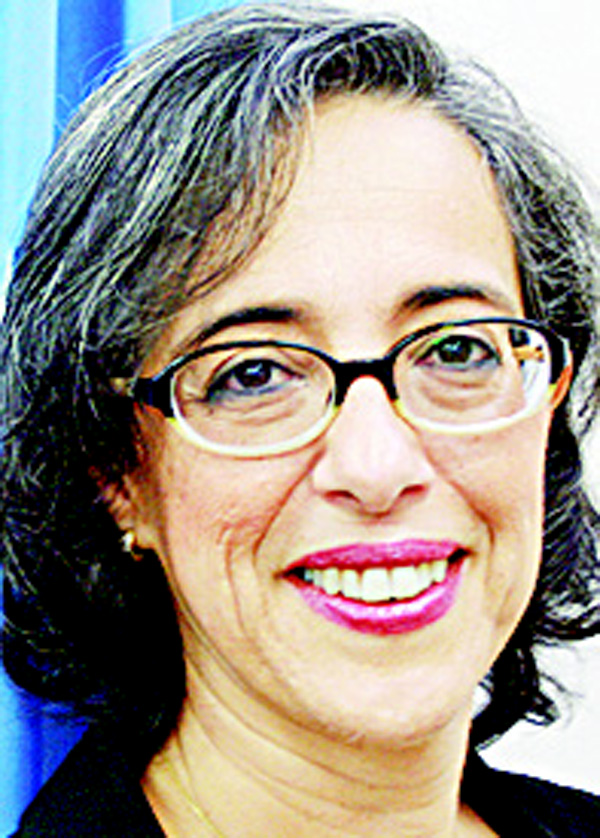10/12/2015
10/12/2015
 Zineb Touimi-Benjelloun
Zineb Touimi-BenjellounOver the past 12 months, we have witnessed a number of historic achievements in international development where our broad and disparate community of nations has confirmed its determination to live in international solidarity.
As we celebrate the 67th anniversary of the adoption on Dec 10, 1948 of the Universal Declaration of Human Rights by the United Nations General Assembly, it is particularly timely to reflect on the vital foundation stone of these achievements: our enduring commitment to the protection and promotion of universal rights.
On the occasion of Human Rights Day 2015, the Office of the High Commissioner for Human Rights will launch a 12 month campaign under the slogan “Our rights. Our freedoms. Always” to celebrate the 50th anniversary of the adoption of two of the most significant texts at international human rights law: the Universal Covenant on Civil and Political Rights and the Universal Covenant on Economic, Social and Cultural Rights.
Together with the Universal Declaration and several other key international conventions, these two Covenants provide the strong backbone of international rights protection and have had an enormous impact in promoting respect for human rights at the national level in the modern era. Far from being resigned to a library shelf, over the past 50 years these documents have grown in significance and influence as our understanding of the interconnection of human rights, international security and development has expanded.
In October we celebrated the 70th anniversary of the United Nations Charter, which established an organization dedicated to international cooperation upon the three pillars of peace and security, development and human rights. These are the intrinsic goals of any human society and as the basis of the UN Charter, they confirm the shared values of our common humanity. Seven decades later, it is all the more clear that we can only reach these goals if we recognize their interconnected nature and exert equal effort towards their achievement, including the protection in law and in practice of fundamental human rights.
Human rights are indivisible and inter-dependent. Enjoyment of freedom of speech does not reduce the imperative of protecting every human being’s right to freedom from hunger, exploitation and fear. 2015 has been a very significant year in reaffirming our global commitment to the promotion and protection of human rights through equitable and sustainable development.
The sustainable development agenda adopted at the special UN summit in September establishes a framework to eliminate poverty and gross inequality and ensure the protection of fundamental rights for all, including those currently most vulnerable to abuse and exploitation. I am proud to note that His Highness Sheikh Sabah Al-Ahmad Al-Jaber Al-Sabah, Amir of the State of Kuwait, emphasised the commitment of his Government to sustainable development in his address to the United Nations summit.
The freedoms at the heart of the two key international human rights Covenants are woven through the 2030 sustainable development agenda, because sustainable development and human rights are mutually-dependent and mutually-reinforcing. The same imperative of fundamental freedoms to live in a low-carbon and resilient environment is at the heart of the negotiation process this week in Paris at the 21st Conference of the Parties to the UN Framework Convention on Climate Change. The consequences of climate change will become an increasingly serious human rights challenge in the coming years and the global community must take action now to mitigate its impact.
In the Arab region, Kuwait offers many good examples of respect for human rights. In March, acting in accordance with the foreign policy principle of promoting humanitarian values and extending assistance to those in most need, His Highness Sheikh Sabah Al-Ahmad Al-Jaber Al-Sabah, Amir of the State of Kuwait, hosted the third international donors’ pledging conference for the victims of the civil war in Syria.
In June, the National Assembly passed legislation to create the first national Human Rights Diwan in Kuwait, responsible for the promotion and protection of human rights in Kuwait. On behalf of the United Nations System in Kuwait, I would like to congratulate the State Kuwait on this demonstration of its commitment to human rights. We stand ready to provide any technical assistance that may be requested to support the establishment of a robust and effective institution.
As we look back on a year that has posed many challenges, we can also be confident that by standing fast to our commitment to human rights protection, Kuwait and its partners in the international community can build a world of lasting freedom.


